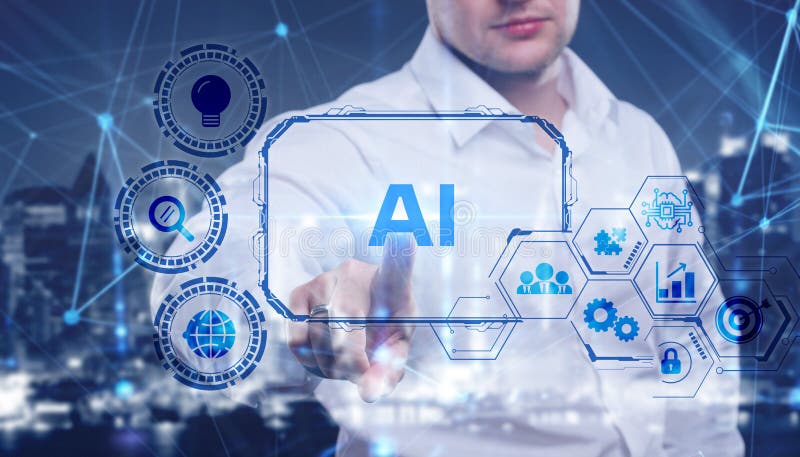The history of AI (Artificial Intelligence) technology is a long and complex one that spans several decades. Here's a brief overview of the key milestones and developments in the history of AI:
 |
| artificial-intelligence-ai-machine-learning-modern-computer-technologies-concepts-business-technology-internet-network-concept-230688536.jpg (800×457) (dreamstime.com) |
Early Beginnings (1940s-1950s):
- The roots of AI can be traced back to the work of pioneers like Alan Turing, who proposed the concept of a theoretical computing machine capable of simulating any human intelligence task.
- In 1950, Alan Turing also developed the "Turing Test," a benchmark for determining a machine's ability to exhibit human-like intelligence.
Dartmouth Workshop (1956):
- The term "Artificial Intelligence" was coined at the Dartmouth Workshop in 1956, where John McCarthy, Marvin Minsky, Nathaniel Rochester, and Claude Shannon gathered to discuss the possibility of creating intelligent machines.
Early AI Programs (1950s-1960s):
- The 1950s and 1960s saw the development of early AI programs, such as the Logic Theorist and the General Problem Solver.
- These programs were limited in their capabilities and focused on specific tasks, like theorem proving and simple problem-solving.
The AI Winter (1970s-1980s):
- During this period, AI research faced significant challenges, leading to a slowdown in funding and progress. Many AI projects failed to live up to expectations.
- Expert systems, which attempted to encode human knowledge in a structured format, gained popularity during this time.
Rise of Machine Learning (1980s-1990s):
- The development of machine learning algorithms, such as neural networks and decision trees, marked a resurgence of interest in AI.
- Expert systems continued to evolve and found applications in fields like medicine and finance.
Emergence of Practical AI Applications (2000s-Present):
- The 21st century brought significant advancements in AI, driven by increased computing power, access to vast amounts of data, and improvements in algorithms.
- Machine learning techniques, particularly deep learning, have revolutionized AI applications, leading to breakthroughs in image recognition, natural language processing, and speech recognition.
- AI-powered applications have become ubiquitous, with virtual assistants like Siri and Alexa, recommendation systems, autonomous vehicles, and medical diagnostic tools.
Ethical and Societal Concerns:
- As AI technology has advanced, it has raised ethical and societal concerns related to privacy, bias, job displacement, and the potential misuse of AI for harmful purposes.
- Efforts to address these concerns have led to the development of AI ethics frameworks and regulations.
Future Directions:
- The future of AI technology is expected to involve even more sophisticated AI systems capable of autonomous decision-making, enhanced human-AI collaboration, and solving complex real-world problems.
The history of AI is characterized by periods of optimism, followed by periods of disappointment, but it has steadily progressed, and AI continues to have a profound impact on various aspects of our lives, from healthcare to transportation to entertainment. It remains a rapidly evolving field with exciting possibilities for the future.
Comments
Post a Comment